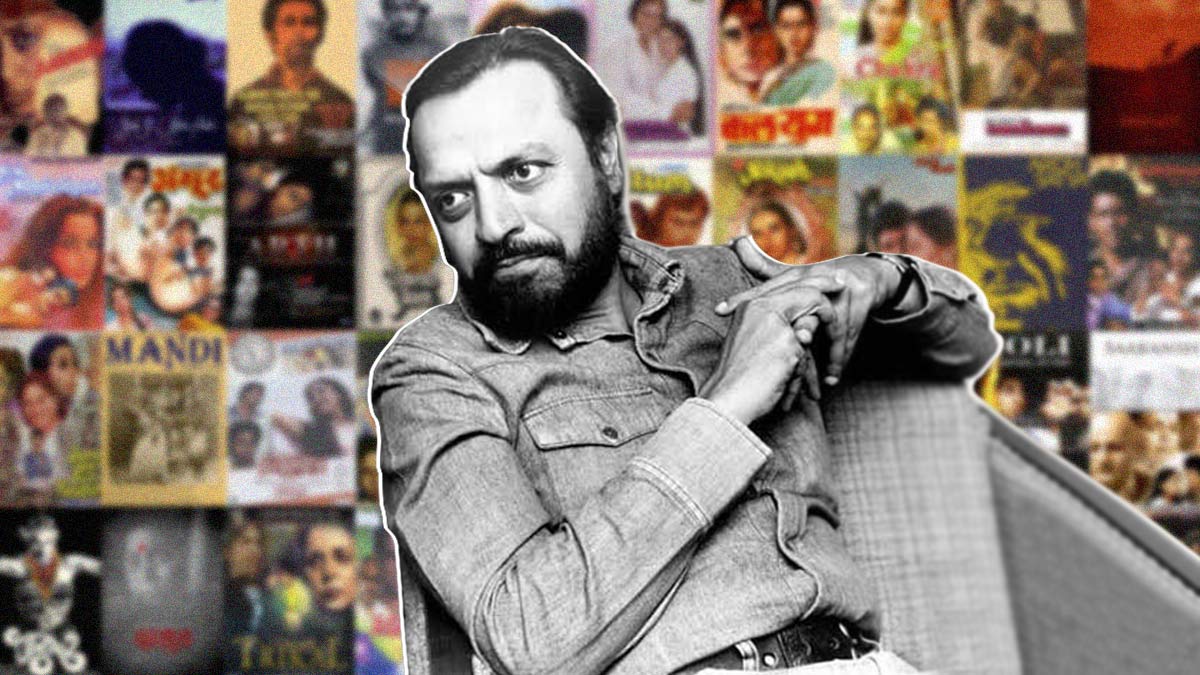Shyam Benegal, a legendary filmmaker who spearheaded the Indian parallel cinema movement, passed away at the age of 90. Known for his commitment to realism and social issues, Benegal was a towering figure in Indian cinema, breaking away from the conventions of mainstream films to create thought-provoking works. He died on December 20 at Mumbai’s Wockhardt Hospital, where he was admitted to the intensive care unit just days after his 90th birthday on December 14.
A Life Dedicated to Cinema
Born in Hyderabad to Sridhar B. Benegal, a prominent photographer, Shyam Benegal was the second cousin of the legendary filmmaker Guru Dutt. He started his career as a copywriter before transitioning to filmmaking, creating his first documentary, Gher Betha Ganga, in 1962.
Benegal’s foray into feature films began with Ankur in 1973, followed by Nishant (1975), Manthan (1976), and Bhumika (1977). These films established him as a pioneer of the parallel cinema movement, characterized by realism, nuanced storytelling, and exploration of social issues.
Despite battling chronic kidney disease for several years and undergoing dialysis three times a week, Benegal remained committed to his craft until the very end. On his 90th birthday, he revealed that he was working on multiple projects, saying, “I’m working on two to three projects; they are all different from one another. It’s difficult to say which one I will make.”

His Prolific Career and Contributions
Shyam Benegal’s career spanned over five decades, during which he made films, documentaries, and television serials that delved into diverse themes. His works include:
- Films: Bhumika, Junoon, Mandi, Suraj Ka Satvaan Ghoda, Mammo, and Sardari Begum, most of which are considered classics in Indian cinema.
- Television: He directed acclaimed series like Bharat Ek Khoj, based on Jawaharlal Nehru’s Discovery of India, and Samvidhaan, a detailed account of India’s Constitution-making process.
- Documentaries: His early works in the genre showcased his ability to portray India’s cultural and social complexities.
Benegal also served as the Director of the National Film Development Corporation (NFDC) from 1980 to 1986, playing a pivotal role in supporting and nurturing independent filmmakers during the era.
Impact on Indian Cinema and Society
Shyam Benegal’s contribution to Indian cinema transcends his films. He is credited with creating a space for parallel cinema, a movement that provided an alternative to commercial Bollywood films.
- Realism in Storytelling: Benegal’s films were rooted in the realities of Indian society, addressing issues like caste, gender inequality, politics, and human relationships.
- Empowering Women’s Voices: Many of his films featured strong female protagonists, portrayed with depth and agency, as seen in Bhumika and Mammo.
- Social Commentary: His works like Manthan (based on the dairy cooperative movement) and Mandi (a satire on politics and prostitution) reflect his commitment to portraying the socio-political issues of the time.
Benegal’s storytelling style inspired a generation of filmmakers, influencing the evolution of Indian cinema by bridging the gap between art and mainstream narratives.

Remembering the Pioneer
Shyam Benegal’s passing marks the end of an era in Indian cinema. Tributes have poured in from across the world, with fans and industry professionals remembering his relentless pursuit of meaningful cinema.
His daughter, Pia Benegal, shared that her father had been suffering from chronic kidney disease, which worsened in recent months. “He passed away at 6:38 pm at Wockhardt Hospital. He had been suffering for several years, but it had gotten very bad,” she said.
Benegal’s last film, Mujib: The Making of a Nation (2023), a biographical account of Sheikh Mujibur Rahman, is a testament to his enduring passion for storytelling and history.
Legacy That Lives On
Shyam Benegal leaves behind a rich legacy that continues to inspire filmmakers and audiences alike. His ability to merge artistry with activism reshaped the cinematic landscape of India, giving voice to stories that were often overlooked.
As the pioneer of parallel cinema, Benegal’s work remains a timeless reminder of the power of films to challenge, educate, and evoke change. Through his storytelling, he captured the essence of India, making an indelible mark on the history of cinema.
With his passing, Indian cinema has lost a visionary, but his contributions will continue to resonate for generations to come.

